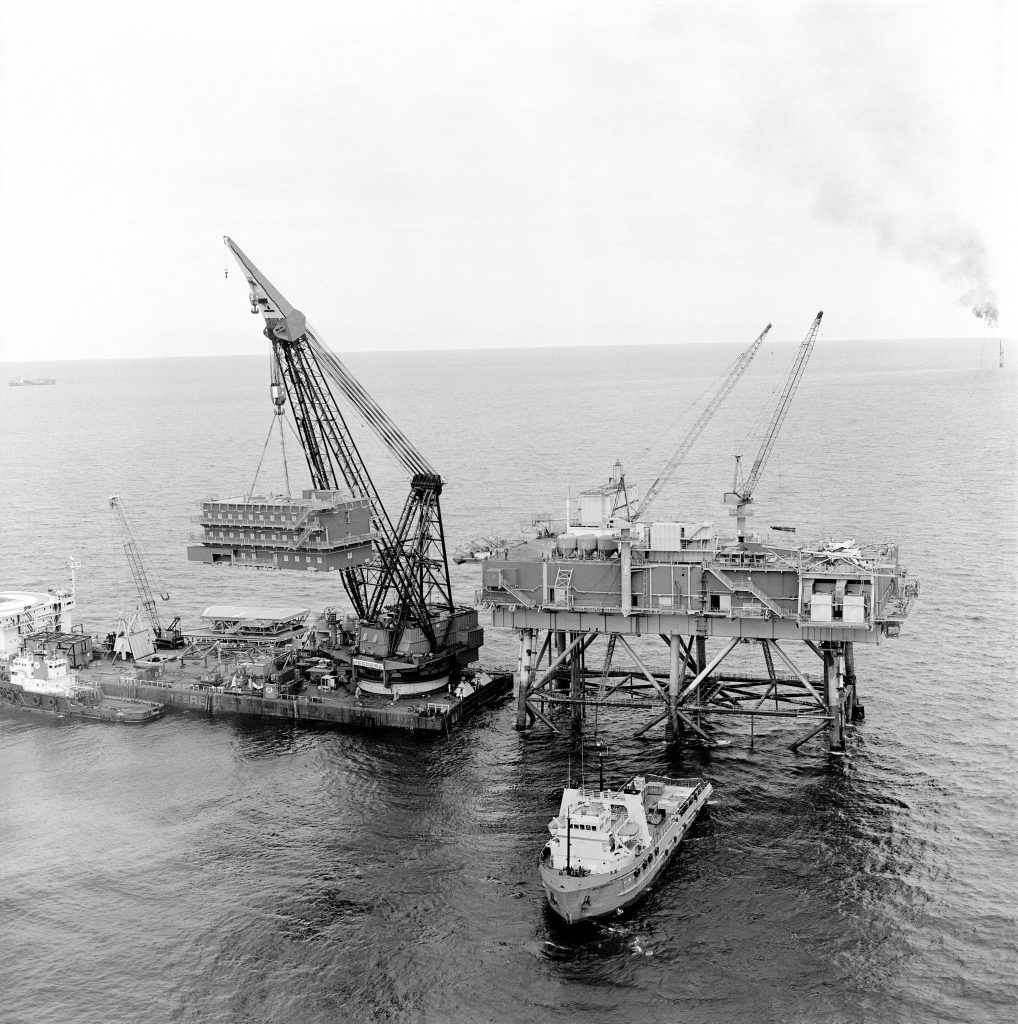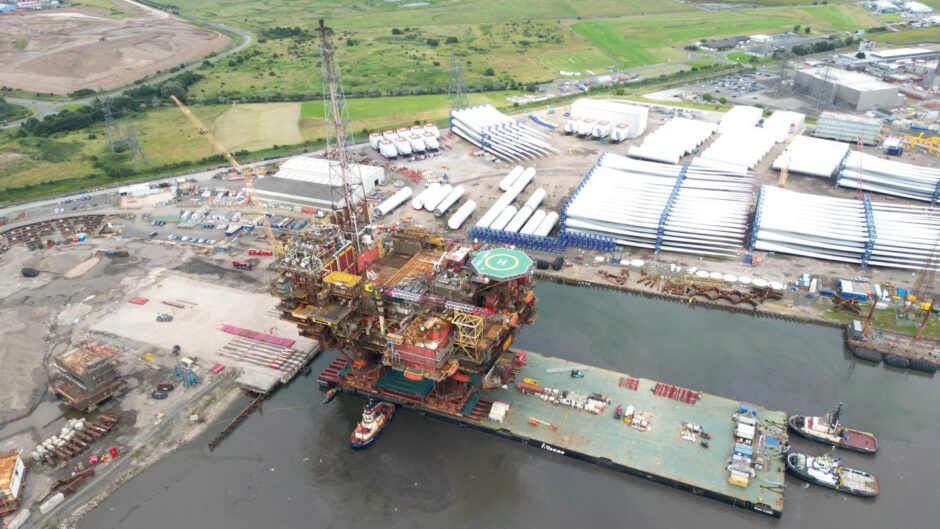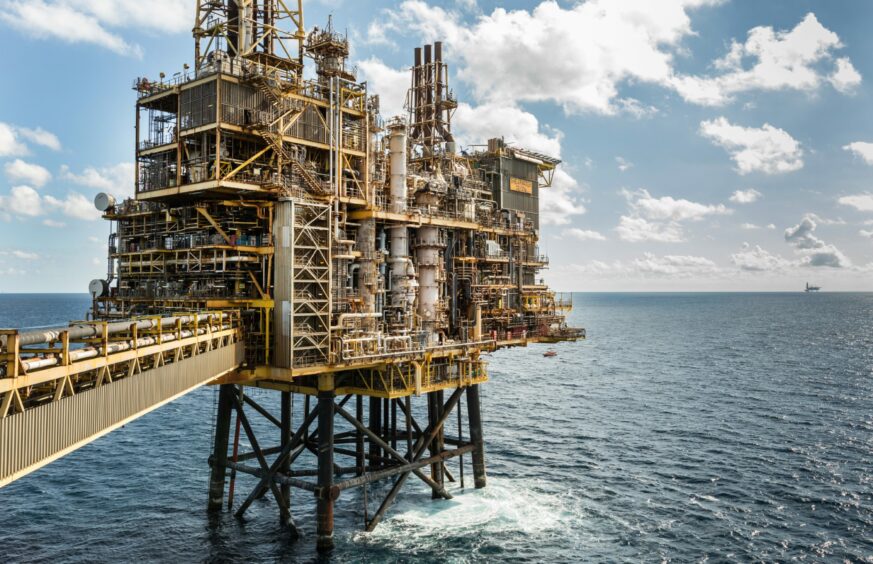
A deal to pool the North Sea oil and gas of Norway’s Equinor (OSLO: EQNR) and Shell (LON: SHEL) marks a significant and historic transformation of the basin.
The deal with the Norwegian firm marks an end to Shell as an operator of North Sea oil and gas assets bringing to a close decades of history since it achieved first oil from the Brent field in 1976.
Shell bosses have confirmed that 1,300 workers from across Aberdeen will be joining its new independent North Sea joint venture (IJV) with Equinor in which it will hold a 50% share.
Thousands more workers employed by “tier 1” oil field services companies working on the new venture’s oil and gas producing assets offshore will also be working for a new company although directors said the work would remain “pretty similar”.
Shell’s integrated gas and upstream director, Zoë Yujnovich, told Energy Voice the deal to become an owner of UK assets rather than an operator marked the “completion” of the restructuring of its North Sea business.
She said: “Shell has been undertaking organisational restructuring around driving to better competitiveness so there will be a completion of that activity. It will be up to the JV to ensure that it does its work in ensuring its competitiveness thereon.”
She confirmed there would be “about 1,300 people in their combined new entity”, with 1,000 coming from Shell and the other 300 from Equinor.
Shell has undergone a number of changes since CEO Wael Sawan took over last year as he looks to drive profitability and shareholder value.
As a result of this, Shell has scaled back some of its renewables investments to double down on its global oil and gas assets.
The two European supermajors revealed the news on Thursday morning that they would be bringing their UK oil and gas assets under one roof to form the UK North Sea’s biggest independent producer.
The joint venture is predicted to produce over 140,000 barrels of oil equivalent per day next year and includes ownership of stakes in Equinor’s Mariner, Rosebank and Buzzard fields and Shell’s Shearwater, Penguins, Gannet, Nelson, Pierce, Jackdaw, Victory, Clair and Schiehallion.
Equinor and Shell are currently awaiting the result of a court hearing held last month in Edinburgh.
The case concerns downstream emissions, or scope three emissions, ad if the UK government considered the impact of them when granting consent for Equinor’s Rosebank oil field and Shell’s Jackdaw development.
How do contractors play into Shell and Equinor’s plans?
A large portion of the workers on Shell and Equinor’s North Sea assets are employed by Tier 1 contractors.
When questioned on the job security of these people, Yujnovich answered: “In terms of the specifics on contracts, I think we will need to allow the IJV to then in time transition these contracts to their own direct contracts.
“But I think at the end of the day the activity is likely to look pretty similar to what we see today.”
She said that the “value of the transaction” comes from the assets in operation today and those currently in construction across the portfolio and in order to leverage this, the IJV will look to extend the life of projects.
“Arguably the focus that we can bring to these assets may well indeed extend the life of the existing assets, particularly those that perhaps are a bit more mature in age,” Yujnovich added.
She argued that in the UK’s mature basin “the opportunity that I think we have in this new horizon” is to extend the operating life of current assets. As a result of this Yujnovich said: “We don’t anticipate a lot of job reductions as part of the newly combined IJV.
Yujnovich later followed up this statement by saying: “The hope of what this next chapter provides is that there is a real competitive focus in the assets and in the expertise that we’re bringing together with Equinor and Shell.
“I think this really could provide more opportunities in terms of the competitiveness of the projects that could be sanctioned under the new IJV construct.
“We’ll have to allow the new IJV to do its optimisations as that may exist. But certainly, this is not a story about job losses.”
‘Love and attention’ for old assets
Simon Roddy, senior vice president for upstream at Shell added that the IJV presents an opportunity as his firm continues to operate in a “basin in decline”.
Roddy commented: “This is really an opportunity for us to shape the future of energy and really have a company that is absolutely focused on the on the potential of the North Sea.”
Panmure Liberum director and oil and gas research analyst Ashley Kelty, welcomed the news of the supermajor IJV.
He claimed that by bringing Equinor and Shell’s assets under one roof it eliminates competition for capital with overseas projects.
Kelty wrote: “The new venture will be better placed for future investment as it will not be competing for capital with other projects in the global portfolios of Shell and Equinor, and management will be focused on the strong UKCS asset base.”
He added that the firm will give assets the “love and attention that they were arguably not receiving in the past given the mature status of the UKCS.”
Aberdeen-based supermajor collaboration
Tapping into the potential of the North Sea, the two firms have decided that their new IVJ will set up shop in Aberdeen.
The question now is where in the city will it be based.
Yujnovich said that the Granite City was the “very basis of where all of the activity that faces the North Sea is coming from.”
Shell recently moved into the Silver Fin building on Aberdeen’s Union Street in March 2023. It’s previous headquarters, a distinctive concrete and glass building in the city’s southern Altens area has since been razed to the ground.
Equinor already has offices in the north-east of Scotland as well. The Norwegian state-backed energy is based in the Primefour Business Park in Kingswells.
“We are absolutely delighted with our new offices here on Union Street,” Roddy commented.
However, due to the IJV being in its “very early stages” the senior vice president for upstream was unable to confirm where in the city the new company will be based.
He added: “we’ll be advocating for the benefits of being in the city centre”.
Local businesses welcomed Shell’s Union Street move last year as cafes and restaurants saw a boost in sales.
One local baker told the Press and Journal that one order from hungry Shell workers pulled in £300.
Yujnovich added: “I think the intention to headquarter the office here is really recognising that this is where much of the talent and expertise exists, and of course, the relationships with contractors as well.”
Recommended for you

 © Supplied by AJL
© Supplied by AJL © Supplied by Mammoet
© Supplied by Mammoet © Simon Price
© Simon Price